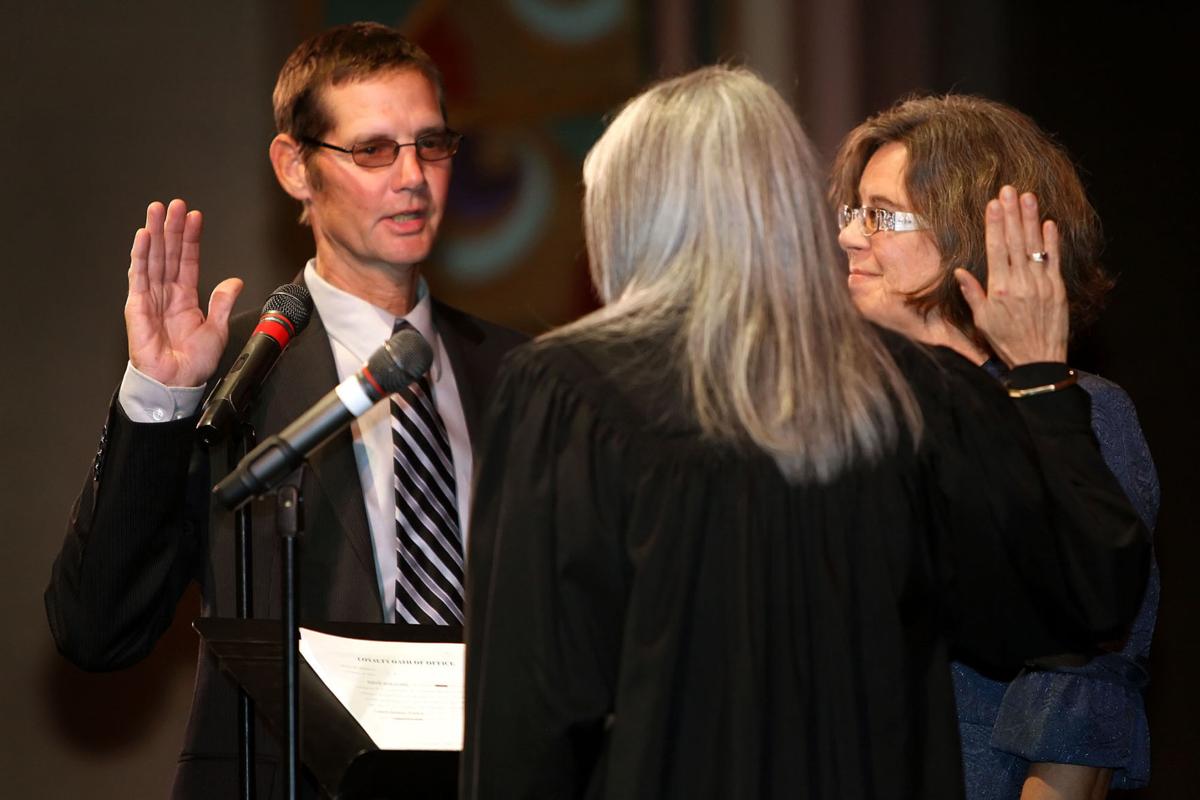For two weeks, pragmatism got a cold shoulder from the people working to reform Tucson’s election system.
A citizens committee should simply recommend the best new system of governance for Tucson, some argued, not worry whether voters would buy the idea. The City Council and others would be responsible for selling it.
Then Monday night a new idea emerged, articulated by member John Hinderaker, and seemed to win the day: That the ideal solution preferred by most of the committee also was the more pragmatic and salable — a new “hybrid” election system that goes to ward-only elections but adds two at-large council seats.
That’s a great bargain if true, but I worry it isn’t.
This committee isn’t just abstractly pondering whether Tucson’s “hybrid” system of primary and general elections is a good one. The 9th U.S. Circuit Court of Appeals ruled in November that it is unconstitutional. The city is appealing, but we need to find a new system of elections before the court forces us.
The committee was asked to recommend a new system to the City Council, for it to put on an upcoming ballot.
Our weird system dates to the 1929 city charter and goes like this: Residents of each ward vote in the primary election only for candidates seeking to represent their ward, but in the general election the whole city gets to vote for council members in all six wards. The court ruled this unconstitutionally favors Democrats.
I think it’s right. While it’s true that at times Republicans have won seats and even had governing majorities, right now it’s an all-Democratic group, reflecting the Dems’ registration advantage in the city.
The court’s suggestion: citywide elections. In other words, we’d all vote for all candidates in the primary election as well as the general. This is a mess of a solution that nobody wants — not the Republicans who brought the lawsuit, nor the Democrats who dominate the citizens committee and the council.
What local Republicans prefer is a simple ward-only system, where you vote in the primary and general elections only for the council member who represents your ward. If residents vote their party registration, that would mean the Republicans generally would win Wards 2 and 4 on the east side. Now, those districts are represented by Democrats who didn’t win the majority of votes in their wards but did win the citywide vote.
Some citizens committee members favor this change, in part because it is simple.
“Going to ward-only elections is going to be the easiest transition for the voters,” member Lenny Porges told his colleagues Monday night.
But he was in the minority. Only six of 14 members present said they would prefer that proposal over another one, the one favored by Hinderaker and others: A new hybrid system that my colleague Becky Pallack and I like to call “ward-only plus two.” The committee voted Monday night to pass both ideas on to the council.
Under the new hybrid proposal, the city would hold ward-only elections for council members representing the six wards, but two “at-large” seats would be added, making the council an eight-member body, plus the mayor.
The main “pro” argument, expressed passionately by member Randi Dorman, is that council members don’t simply focus on their own wards’ interests, that there are two members looking out for the city as a whole.
“Staying the same is not an option. But moving forward with a vision is, and the hybrid system let’s us achieve that,” Dorman said.
Another member, Tannya Gaxiola, explained: “What’s important for me is making sure that we are preserving the strong neighborhood tradition we have in Tucson. The hybrid system would preserve that but would add the ability for the at-large members to take a broader look at the city.”
Maybe true, but could it be sold to voters?
Dorman said yes: “The simplicity of the ward-only system makes it easy to support but also easy to oppose. When I look at the hybrid system — once you understand it, it’s easy to support.”
Indeed, if you take the arguments for the at-large members at face value, they make some sense. But if you look at it from a partisan perspective, the idea is pretty fishy.
The ward-only aspect of the proposal would likely give Republicans two seats, but then the at-large seats could dilute their influence by adding two more members who, if voters follow their registration patterns, would put two more Democrats on the council.
The chairman of the Pima County Republican Party, Bill Beard, told me he was disappointed not to have been consulted by the committee or council in this discussion which, after all, revolves in good part around representation of the members of his party.
“The only thing they’re going to accomplish by going to ward-only but adding at-large seats is stacking the deck for Democrats to continue controlling the City Council in Tucson,” he said.
So it’s possible Republicans will actively oppose this proposal if it goes to the ballot. The ward-only-plus-two idea also has the drawbacks of being a bit complicated and adding cost — probably around $650,000 per year. I won’t be surprised if those factors make this idea a tough sell.
On the other hand, while ward-only elections are a simple solution, it’s also likely some Democrats will oppose that idea if it goes to the ballot. Citizens committee chair Bonnie Poulos said she would oppose it, and member Jeff Rogers, a former county Democratic Party chair, said he expects organized opposition.
So neither proposal can necessarily claim the pragmatist’s crown. That’s the bad news, and it makes me return to my support for ward-only elections because the system is simple and functional.
The good news is, as Hinderaker said of the two proposals, “Either of those are really pretty close together and represent a big change for the city.”





